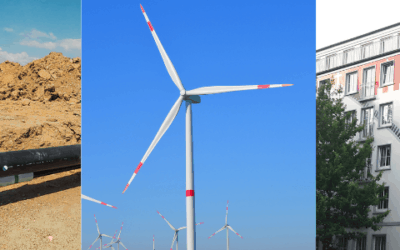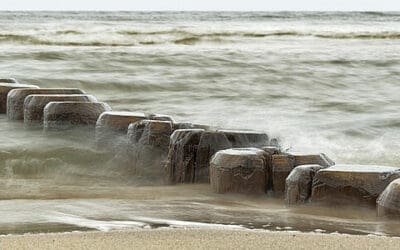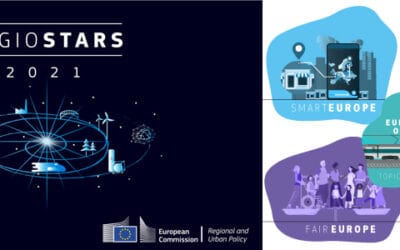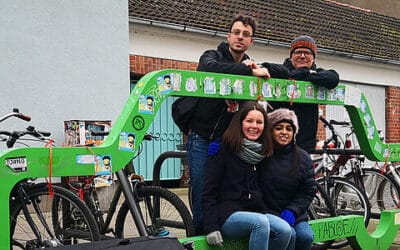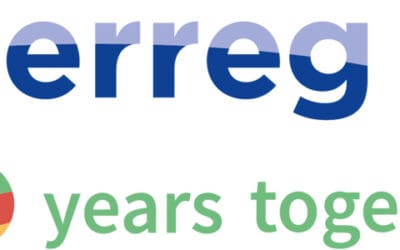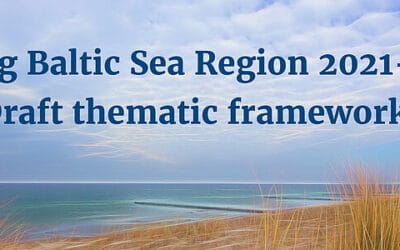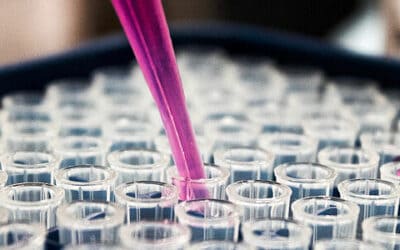A common challenge for the countries in the Baltic Sea region is how to produce green and climate-neutral energy. In fact, as much as 75% of the EU greenhouse gas emissions still come from energy use and production. Cooperation and sharing good practices in Interreg projects, such as LowTEMP, Baltic Integrid and Area 21, can be a game-changer in accelerating the energy transition in the region.
Interreg Baltic Sea Region
News
Further steps taken for preparing the new Programme
Shaping a funding programme like Interreg Baltic Sea Region 2021-2027 requires a full dedication of all Joint Programming Committee (JPC) members. In another meeting held on 24-25 March 2021, the JPC members focused on the division of the expected Programme budget to...
5 questions to EcoDesign Circle: RegioStars finalist 2020
One of our Interreg Baltic Sea Region projects, EcoDesign Circle, reached the finals of the RegioStars Awards last year in the category of circular economy. What did the process look like? What did the project like most? And, most importantly, what was the gain for the project? Read the interview below.
RegioStars Awards 2021: Do you want to be a RegioStar?
Does your project demonstrate exceptionally innovative ways to regional development? Does your project bring in results that deserve a Europe’s label of excellence? The RegioStars Awards 2021 edition is ongoing! Don't waste your chances for more visibility and a...
Encounters with passionate mobility managers
There’s a story behind every project: a story of people from countries around the Baltic Sea who team up to exchange good practices or find a new way to tackle a joint challenge – together. In Interreg Baltic Sea Region, there are 140 such stories. And for the Managing Authority/Joint Secretariat staff, it is very rewarding to assist project partners from the moment their project idea starts to sprout to harvesting the achievements. Like in the case of the project cities.multimodal.
Preparations for Interreg Baltic Sea Region 2021-2027 at full speed
The fourth meeting of the Joint Programming Committee held on 3-4 February 2021 focused on finalising the topics of the new Programme and agreeing on concrete steps to simplify funding procedures in the future. © PantherMedia / EpicStockMedia Valuable exchange...
Celebrating 30 years of Interreg: summary
All along 2020, we have celebrated 30 years of Interreg and cooperation in all its shapes. As the second pillar of the Cohesion policy, European Territorial Cooperation is at the heart of the European spirit because it encourages regions and countries to tackle...
Funding for years 2021–2027 under four priorities!
The Interreg Baltic Sea Region Programme 2021-2027 will offer funding under four priorities: Innovative Societies, Water-Smart Societies, Climate-Neutral Societies and Cooperation Governance, covering nine Programme objectives altogether. Members of the Joint...
Commercialising biomarkers faster to improve medical treatment
A project was set into motion in 2017 with the ambitious aim to facilitate and standardize the commercialization process of new biomarkers. Biomarkers are increasingly important in disease risk prediction, diagnosis, prognosis and treatment response. The BIC project concluded in September 2020 and brought about some tools that can help medical companies to bring new biomarkers to the market faster.
A word from the Commission: Keep up the good work!
Pekka Jounila has just finished his assignment as a contact person for Interreg Baltic Sea Region at the European Commission. How does he reflect on almost three years of working with the Programme? Which project does he remember most? How does he assess the ongoing...



